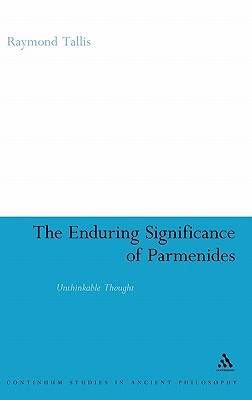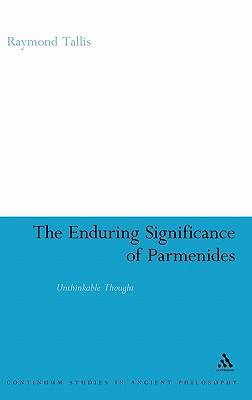
Bedankt voor het vertrouwen het afgelopen jaar! Om jou te bedanken bieden we GRATIS verzending (in België) aan op alles gedurende de hele maand januari.
- Afhalen na 1 uur in een winkel met voorraad
- In januari gratis thuislevering in België
- Ruim aanbod met 7 miljoen producten
Bedankt voor het vertrouwen het afgelopen jaar! Om jou te bedanken bieden we GRATIS verzending (in België) aan op alles gedurende de hele maand januari.
- Afhalen na 1 uur in een winkel met voorraad
- In januari gratis thuislevering in België
- Ruim aanbod met 7 miljoen producten
Zoeken
Omschrijving
Parmenides of Elea is widely regarded as the most important of the Presocratic philosophers and one of the most influential thinkers of all time. He is famous, or notorious, for asserting that change, movement, generation and perishing are illusions arising from our senses, that past and future do not exist, and that the universe is a single, homogeneous, static sphere. This picture of the world is not only contrary to the experience of every conscious moment of our lives, it is also unthinkable, since thoughts themselves are events that come into being and pass away. In this important new book, Raymond Tallis critically examines Parmenides conclusions and argues that, although his views have had a huge influence, they are in fact the result of a failure to allow for possibility, for what-might-be, which neither is nor is not. Without possibility, there is neither truth nor falsehood. Tallis explores the limits of Parmenides ideas, his influence on Plato and, through him, Aristotle and finally, why Parmenides is still relevant today.
Specificaties
Betrokkenen
- Auteur(s):
- Uitgeverij:
Inhoud
- Aantal bladzijden:
- 258
- Taal:
- Engels
- Reeks:
- Reeksnummer:
- nr. 6
Eigenschappen
- Productcode (EAN):
- 9780826499523
- Verschijningsdatum:
- 29/01/2008
- Uitvoering:
- Hardcover
- Formaat:
- Ongenaaid / garenloos gebonden
- Afmetingen:
- 161 mm x 235 mm
- Gewicht:
- 517 g

Alleen bij Standaard Boekhandel
+ 746 punten op je klantenkaart van Standaard Boekhandel
Beoordelingen
We publiceren alleen reviews die voldoen aan de voorwaarden voor reviews. Bekijk onze voorwaarden voor reviews.









